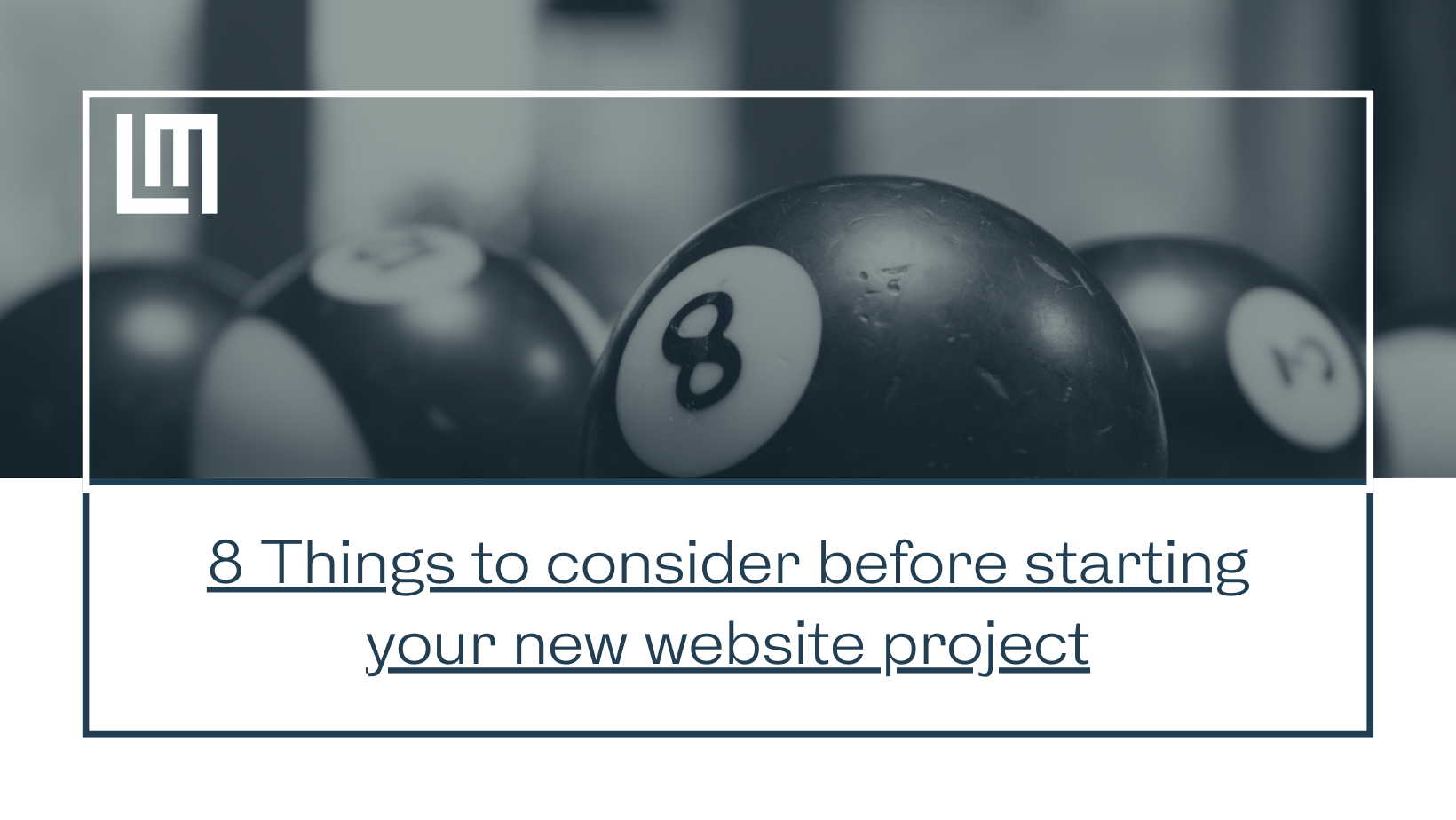8 Things to consider before starting your new website project
If you are starting a new business you will need to create your brand, or if your company has been established a while, you may be considering modernising or revamping it.
Your brand, logo, tagline or USP is what makes your organisation unique and will help you stand out from your competitors on the web.
When your website is being designed, your brand needs to be integrated to make a good first impression with your visitors.
Your target audience will influence your website’s style
Try to establish the demographic of your ideal customers before starting to design your website. If you know the preferences of your prospects, you can set an overall tone that will be more likely to attract them.
Know your why
Decide from the start what your objectives are for your website, whether it is to become an eCommerce shop, or whether you want to establish your reputation as an industry expert or to build your brand.
Your designer will have your objectives in mind when they create the user interface (UI) and the journey they create when your visitors interact on your website (user experience (also known as UX)).
Decide on your website’s features
It is essential to know which features you wish to incorporate before starting to build your website, as it may be difficult and costly in time and money to add them later.
For example:
• eCommerce
• Ability to integrate with third parties like CRM and accounting systems
• Multilingual for worldwide commerce
• Live interaction with your audience
• Blog or news section
• Ability to answer buyers’ questions.
Create a site map
Just as you need a map before you start a journey, your web agency will need a site plan to ensure everything is included that you want. It will also help them give you a quote for the work.
Have your content ready
Your SEO-rich copy, images, infographics, blogs and testimonials need to have been prepared in advance of your website being completed, so it can be uploaded before your website is launched. Commissioning the help of a copywriter, graphic designer and/or photographer will help your website to look and sound more professional. These are website winners that will help raise your brands profile.
Choose your Content Management System (CMS)
Choosing which computer software to use to manage your content is your next consideration. It will depend on your requirements and the functionality you need, whether you opt for a prebuilt solution like WordPress, a bespoke CMS especially built for your needs, like those built by Leading Motion or ProcessWire.
Hosting options
You also need to decide who will host your website, whether you will want it hosted in the cloud or whether you’ll need a more customised solution. Make sure you check the terms and conditions as some hosts might offer an initial discount which is later ranked up to a higher fee.
Being able to analyse your data and record the number of visitors is important, as this will help you to devise your marketing strategy and campaigns. You will also want to know what is guaranteed and the support that is provided.
Set targets
Before your website goes live, it is good to set goals on what you want to achieve through it. This could be assessed by measuring the number of sales over a set period, your conversion rate and bounce rate.
You should keep a record, analysing the traffic to your website, also track your users’ journey and how long they stay.
Our Leading Motion experts are available to help you if you have any questions. Don’t hesitate to call: 01206 512093.
Share this post:


